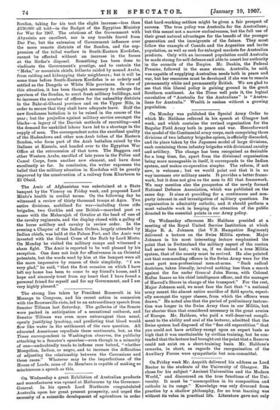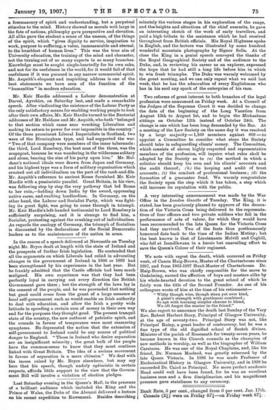On Friday week Mr. Asquith delivered his address as Lord
Rector to the students of the University of Glasgow. He chose for his subject "Ancient Universities and the Modern World," and discoursed on the true functions of the Uni- versity. It must be "cosmopolitan in its composition and catholic in its range." Knowledge was only divorced from practice by a shallow philosophy, for no true learning was without its value in practical life. Literature gave not only a freemasonry of spirit and understanding, but a perpetual stimulus to the mind. History showed us morals writ large in the fate of nations, philosophy gave perspective and elevation. All alike gave the student a sense of the unseen, of the things of the spirit, which "gives dignity to service, inspiration to work, purpose to suffering, a value, immeasurable and.eternal, to the humblest of human lives." This was the true aim of University education, the training of the mind and character, not the turning out of so many experts in so many branches. Knowledge must be sought single-heartedly for its own sake, and not for its usefulness in the world, for it would fail of that usefulness if it was pursued in any narrow commercial spirit. Mr. Asquith's eloquent and inspiriting address is one of the best statements we have seen of the function of the "humanities" in modem education.







































 Previous page
Previous page